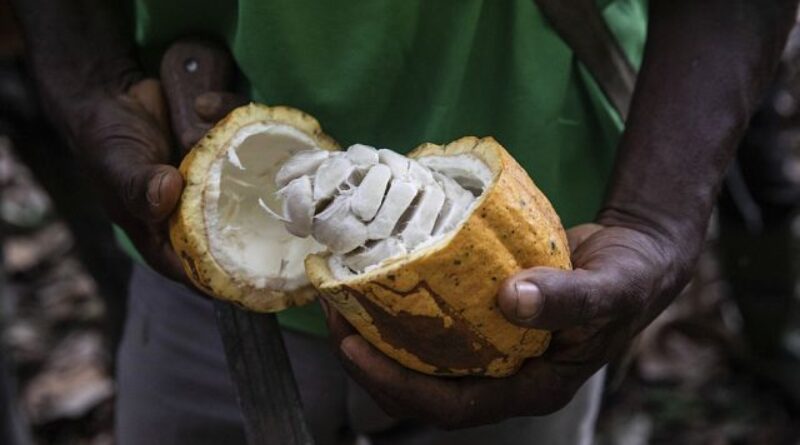Cameroon: chocolate-makers squeezed by high cocoa prices
On his plantation in Muyuka in south-west Cameroon, Chief Orok John is inspecting the young cocoa plants.
For several weeks now, he has been trying to find suitable treatments for the pod diseases that are weakening his crops.
He is one of a number of local producers who sell their crop in Nigeria rather than on the local market, but says competition between local and Nigerian buyers has forced the price up.
“We expect the government to pay more attention to our own cocoa factories to produce our local chocolate. Because if we have our own local factories, like Nigeria, Ghana, and Ivory Coast the prices of cocoa will increase further,” he says.
In recent weeks, cocoa has become scarce on the international market, pushing the price per tonne to over $10,000.
For the three cocoa-producing countries of Ghana, Ivory Coast, and Cameroon, where cocoa beans are in short supply, the impact has been enormous.
The cause of the scarcity is a lack of quality and climate change.
Another reason, says Doula-based chocolate-maker, Hippolyte Nozawo Tchoffo, is that for some months now, demand on the international market has been greater than supply.
“For a number of years, as the price of cocoa remained very low, many cocoa farmers abandoned their plantations, or did not maintain them sufficiently, resulting in ageing plantations and falling yields,” he says.
“The second factor is climate change. There are times when there’s very heavy rain when we were expecting sunshine. There’s also the mould that develops when the climate is not respected.”.
As a result, the price per kilo in Cameroon has risen seven-fold in just one month, from 900 to 7,000 francs. This is very bad news for local processors like Tchoffo, who is now running out of raw material.
“Us, for example, our chocolates contain almost 40 to 80 per cent cocoa, or even 90 per cent for some chocolates. So, when it becomes seven times more expensive, that has an impact,” he says.
“It increases the price of the bar at least five times. If we pass on this increase, which is 500 to 600 per cent, customers won’t be able afford it, and if they can’t, we won’t sell and we’ll close.”
As an urgent solution, the government is promising to provide farmers with financial assistance in the coming days so that they can produce healthy cocoa that meets standards on both the local and international markets.
But with some chocolate-makers already halting production until costs come down, manufacturers are now demanding that an export tax be paid back to them to ease their financial woes.

